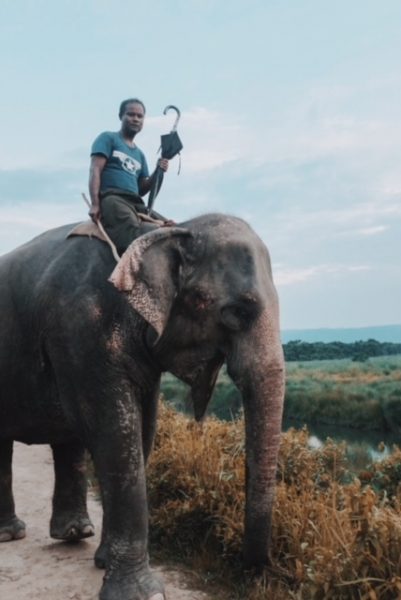Elephants In the Terai

Processed with VSCO with c8 preset
When you spend a month in the Terai you run into a lot of similarities between villages. When you find information special to one area it’s pretty exciting. However, we were not prepared for such a shocking find.
We walked around for about an hour searching for people. Everyone appeared to be out working in their fields. Finally, we came across a middle-aged woman. She was extremely eager to speak with me. To the point that often she would forget I could not understand her and she would begin speaking in rapid Nepali to me as I smiled without understanding a word. But then she said a word I did understand, “Elephants.”
My translator stepped in and began to explain all she was saying to me. The excitement on my face slowly turned to shock and sadness. This kind woman began to describe in great detail the greatest danger to their people, the elephants.
The kind woman took us to the high point of the village, which was a small hill that looked similar to a sand dune. As we stood on top of it she pointed across a large space of desolate flat land towards the jungle. “They come from there,” she said. The flat land is left destitute every year by the elephants. Every October during the harvest season of rice they come and eat all their crop, eat the fish out of their river, trample their homes to nothing, and kill their people. The elephants come every 2-3 days and kill 5-6 people with each visit.
I asked what could be done to help and she said that there is nothing to be done. The penalty to kill an elephant was a fine of a minimum of one thousand American dollars and five years in jail. All the people can do is hide and pray they leave enough of their crops so the people have enough to eat. Most people have to buy rice from other villages to survive the year. The woman told us that there is no one in government to stand for them and none are strong enough to protect them.
The thought of a world where people die from animal attacks and nothing is done for them is shocking to those in the western world. However, here the feeling of helpless to circumstances is all too normal.
